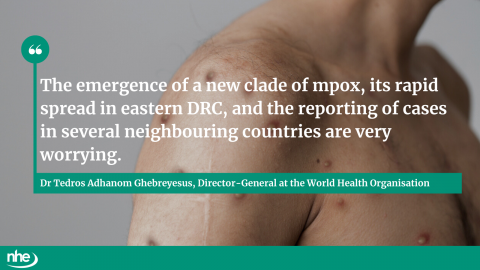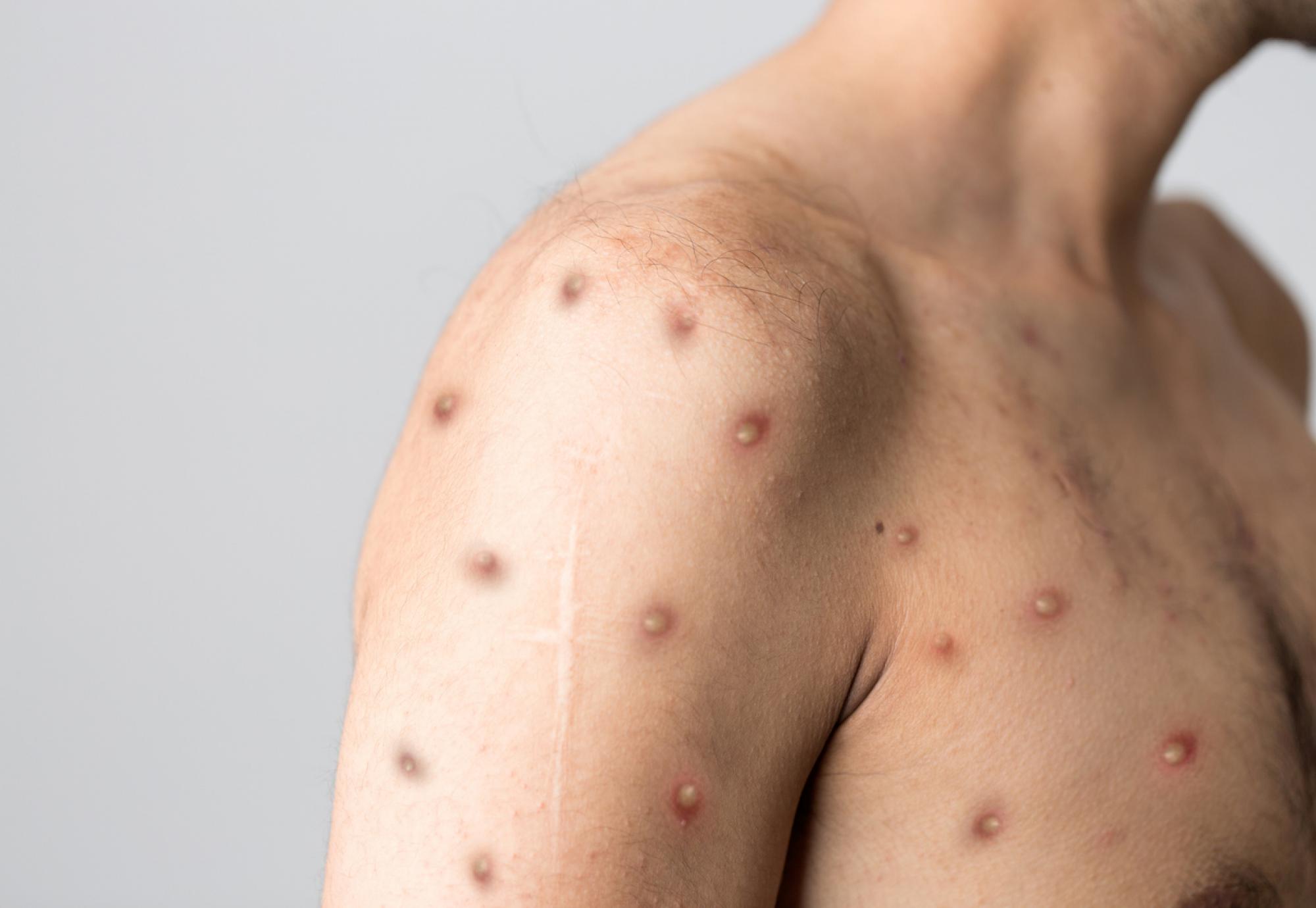Just a few hours after the Africa Centres for Disease Control and Prevention (Africa CDC) declared the outbreak of mpox – formerly known as monkeypox – across the continent a public health emergency, the World Health Organisation (WHO) has followed suit and reinstated the disease’s status as a public health emergency of international concern (PHEIC).
A PHEIC was similarly called for mpox in July 2022 by WHO after a multi-country outbreak in Africa, but was declared over last May.
One of the main reasons for this declaration is that a new strain of the virus – clade 1b – is spreading through (mainly) sexual networks into neighbouring countries to the Democratic Republic of the Congo (DRC), which is where the outbreak’s epicentre is.
Mpox was first discovered in the DRC in humans in 1970 and is generally endemic to countries in central and west Africa.
The number of mpox cases has slowly increased in the DRC over the last 10 years, however, last year saw a particularly sharp incline and 2024 has already exceeded 2023’s total, with over 15,600 confirmed cases and 537 reported deaths.
In the past month alone, there have been more than 100 lab-confirmed cases of the new strain in the DRC’s neighbouring countries – Burundi, Kenya, Rwanda, and Uganda.

"The emergence of a new clade of mpox, its rapid spread in eastern DRC, and the reporting of cases in several neighbouring countries are very worrying,” said WHO’s director-general, Dr Tedros Adhanom Ghebreyesus.
“On top of outbreaks of other mpox clades in DRC and other countries in Africa, it’s clear that a coordinated international response is needed to stop these outbreaks and save lives.”
There have been several outbreaks of different clades of mpox in various countries, with different modes of transmission and levels of risk.
Dr Matshidiso Moeti, WHO regional director for Africa, added: “Significant efforts are already underway in close collaboration with communities and governments, with our country teams working on the frontlines to help reinforce measures to curb mpox.
“With the growing spread of the virus, we’re scaling up further through coordinated international action to support countries bring the outbreaks to an end.”
WHO triggered the emergency use listing for mpox vaccines, which will help lower-income countries benefit from expedited vaccine access.
Chair of the International Health Regulations Emergency Committee, Professor Dimie Ogoina, commented: “The current upsurge of mpox in parts of Africa, along with the spread of a new sexually transmissible strain of the monkeypox virus, is an emergency, not only for Africa, but for the entire globe.
“Mpox, originating in Africa, was neglected there, and later caused a global outbreak in 2022. It is time to act decisively to prevent history from repeating itself."
Also responding to the news, the UK Health Security Agency's deputy director, Dr Meera Chand, said: "The risk to the UK population is currently considered low. However, planning is underway to prepare for any cases that we might see in the UK.
"This includes ensuring that clinicians are aware and able to recognise cases promptly, that rapid testing is available, and that protocols are developed for the safe clinical care of people who have the infection and the prevention of onward transmission."
Image credit: iStock



















